Everything You Need to Know About LMSW, LICSW, and Private Practice
Social work licensing in Alabama has undergone major changes that every licensed social worker needs to understand. The most significant change is the complete elimination of the Professional Identity Program (PIP), which previously required 200 additional hours of training beyond your MSW degree before you could begin practicing. This expensive and time-consuming requirement is now completely gone, meaning new social workers can begin supervised practice immediately upon receiving their LMSW license. This guide provides comprehensive information about every aspect of social work licensing in Alabama, including why LMSWs cannot form LLCs or work as 1099 contractors, the specific continuing education requirements for each license type, and detailed information about supervision, private practice, and opportunities for professional growth.
The Elimination of the PIP: What This Means for You
The Professional Identity Program (PIP) was an Alabama-specific requirement that mandated 200 hours of additional coursework covering Alabama laws, regulations, and practices before social workers could begin supervised practice. This program cost between $2,000 and $3,000 and delayed entry into practice by 6-12 months. The Alabama legislature eliminated this requirement after extensive advocacy from the social work community, recognizing that CSWE-accredited MSW programs already provide comprehensive preparation for practice. The elimination of the PIP means that new MSW graduates can now apply for their LMSW license immediately upon graduation and begin accruing supervised hours toward their LICSW as soon as they pass the ASWB Master’s exam. This change saves new social workers thousands of dollars and allows them to begin serving clients months earlier than under the previous system.
Understanding Why LMSWs Cannot Form LLCs or Work as 1099 Contractors in Alabama
One of the most important things for LMSWs to understand is that Alabama law specifically prohibits LMSWs from forming LLCs for private practice or working as 1099 independent contractors. This restriction exists because LMSWs are not considered independent practitioners under Alabama law and must practice under supervision. The Alabama State Board of Social Work Examiners enforces this requirement strictly because LMSWs do not have the legal authority to practice independently, cannot diagnose mental health conditions without supervision, and cannot bill insurance companies directly for services.
An LLC (Limited Liability Company) is a business structure that provides liability protection for independent business owners, but since LMSWs cannot practice independently, they cannot legally operate a business providing clinical social work services. The requirement for supervision means that LMSWs must have an employment relationship with a supervising LICSW-S, which requires W2 employee status. Insurance companies will not credential LMSWs for direct billing because they are not independent practitioners, and without the ability to bill insurance or legally practice independently, there is no legitimate business purpose for an LMSW to form an LLC for clinical practice.
This restriction protects both social workers and clients by ensuring appropriate supervision and oversight during the crucial early years of clinical practice. LMSWs who attempt to work as 1099 contractors or form LLCs for clinical practice risk disciplinary action from the Board, including potential suspension or revocation of their license. The only way to work as a 1099 contractor or form an LLC for private practice in Alabama is to complete your supervision requirements and obtain your LICSW license.
Alabama Social Work License Types and Requirements
Important Note About Degrees
Having a PhD or DSW (Doctor of Social Work) does not exempt you from any licensing requirements in Alabama. Whether you have an MSW, PhD, or DSW, you must follow the same pathway: obtain your LMSW, complete supervised hours, and pass the clinical exam to get your LICSW. The doctorate degree does not provide any shortcuts or exemptions from supervision requirements, continuing education requirements, or examination requirements. Every social worker in Alabama follows the same licensing pathway regardless of their highest degree.
LMSW (Licensed Master Social Worker)
The LMSW is the entry-level clinical license in Alabama requiring a Master of Social Work degree from a CSWE-accredited program. To obtain your LMSW, you must complete the LMSW Application Form available on the Board website. The application fee is $200, payable through the Board’s online portal. You must arrange for official transcripts to be sent directly from your university to the Alabama State Board of Social Work Examiners at P.O. Box 304760, Montgomery, AL 36130-4760.
The ASWB Master’s examination must be passed with a score of 70 or higher, and the exam fee of $260 is paid directly to ASWB through their website. You must also complete a criminal background check through ALEA (Alabama Law Enforcement Agency) which costs $51.25 and uses the Board’s approved vendor. The background check authorization form is available at https://socialwork.alabama.gov/wp-content/uploads/2023/06/Background-Check-Form.pdf.
Once licensed, LMSWs must renew every two years by September 30 of odd-numbered years. The renewal fee is $150 and can be paid through the Online Renewal Portal. Late renewal incurs an additional $50 late fee for renewals submitted between October 1 and December 31, and licenses not renewed by December 31 are considered lapsed, requiring reinstatement procedures.
LMSW Continuing Education Requirements
LMSWs must complete 30 hours of continuing education every two-year renewal period. These 30 hours must include a mandatory 3 hours in professional ethics covering the NASW Code of Ethics and Alabama social work laws and regulations. The remaining 27 hours can be in any area relevant to social work practice including clinical skills, assessment and diagnosis, treatment modalities, cultural competence, or specialized populations. No more than 15 of the 30 hours can be obtained through online or distance learning formats.
The Continuing Education Reporting Form must be completed and submitted with your renewal application. You must maintain certificates of completion for all CE activities for at least four years after the renewal period. The Board conducts random CE audits, and if selected, you must provide all documentation within 30 days. Failure to complete required CE hours results in license suspension until requirements are met.
LICSW (Licensed Independent Clinical Social Worker)
The LICSW represents full clinical independence in Alabama. Requirements include holding a current LMSW license, completing 3,000 hours of supervised clinical experience over no less than two years and no more than six years, receiving at least 100 hours of face-to-face supervision from an approved supervisor, and passing the ASWB Clinical examination with a score of 70 or higher. The LICSW Application Form requires a $200 application fee.
Your supervision must be documented using the Supervision Contract Form, which must be filed with the Board within 30 days of beginning supervision. The Supervision Log Form must be maintained throughout supervision, documenting each supervision session. Quarterly supervision reports must be submitted using the Quarterly Supervision Report Form. Upon completion, your supervisor must complete the Final Supervision Evaluation Form.
LICSW licenses renew on the same schedule as LMSW licenses, every two years by September 30 of odd-numbered years, with a renewal fee of $150 through the Online Renewal Portal.
LICSW Continuing Education Requirements
LICSWs must complete 30 hours of continuing education every two-year renewal period with specific categorical requirements. The required hours include 3 hours in professional ethics, 6 hours specifically in diagnosis and treatment of mental disorders, and 21 hours in other areas relevant to clinical social work practice. The 6 hours in diagnosis and treatment must specifically address DSM-5 diagnoses, evidence-based treatment approaches, psychopharmacology, or assessment techniques. Like LMSWs, no more than 15 hours can be obtained online.
LICSW-S (Licensed Independent Clinical Social Worker – Supervisor)
The LICSW-S designation allows you to provide supervision to LMSW candidates. Requirements include maintaining an LICSW license for at least two years, completing a Board-approved 30-hour supervision training course, and submitting the Supervisor Designation Application with a $100 fee. The List of Approved Supervision Training Courses is maintained on the Board website.
LICSW-S Continuing Education Requirements
LICSW-S licensees must complete 36 hours of continuing education every two-year renewal period. This includes all requirements for LICSWs (3 hours ethics, 6 hours diagnosis and treatment, 21 hours general) plus an additional 6 hours specifically in supervision topics. These supervision hours must address topics such as supervision models and theories, managing challenging supervision situations, legal and ethical issues in supervision, or evaluating supervisee progress. The additional 6 supervision hours can be obtained online without counting toward the 15-hour online limit.
Complete List of Alabama Board Forms and Their Purposes
The Alabama State Board of Social Work Examiners maintains all necessary forms on their website. Here is a comprehensive list with direct links and explanations:
Application Forms
The LMSW Application Form is used for initial master’s level licensure and requires a $200 fee. The LICSW Application Form is for clinical licensure after completing supervision requirements, also with a $200 fee. The Supervisor Designation Application allows LICSWs to become approved supervisors with a $100 fee. The Reinstatement Application is used when a license has lapsed beyond the grace period, requiring a $300 fee plus completion of any missed CE hours.
Supervision Forms
The Supervision Contract Form must be filed within 30 days of beginning supervision and outlines the supervision arrangement. The Supervision Log Form documents each supervision session including date, duration, and topics discussed. The Quarterly Supervision Report Form summarizes supervision progress every three months. The Final Supervision Evaluation Form certifies completion of all supervision requirements. The Change of Supervisor Form must be filed if you change supervisors during your supervision period.
Renewal and CE Forms
The Online Renewal Portal is used for all license renewals with a $150 fee. The Continuing Education Reporting Form documents completed CE hours for each renewal period. The CE Provider Application is for those wanting to offer approved continuing education with a $100 initial fee and $75 annual renewal. The CE Course Approval Form is for individual course approval when not offered by an approved provider.
Administrative Forms
The Change of Address Form must be filed within 30 days of any address change. The Name Change Form requires legal documentation of name change. The Verification of Licensure Form is used when you need license verification sent to another state or organization, with a $25 fee. The Duplicate License Request replaces lost or damaged licenses for a $25 fee.
Key Board Website Pages
The Alabama State Board of Social Work Examiners Homepage provides general information and news updates. The License Renewal Page contains renewal instructions and deadlines. The Continuing Education Page lists approved providers and CE requirements. The Supervision Information Page explains supervision requirements and processes. The Laws and Rules Page contains the complete Alabama Social Work Practice Act and Board Rules. The Disciplinary Actions Page lists public disciplinary actions taken by the Board. The Board Meeting Schedule shows upcoming meeting dates and agendas. The Contact Information Page provides phone, email, and mailing address for the Board office.
Supervision: Complete Requirements and Costs
Supervision is the bridge between LMSW and LICSW licensure, requiring careful planning and significant financial investment. The 3,000 hours of supervised experience must include at least 1,500 hours of direct client contact providing clinical social work services. The remaining 1,500 hours can include case documentation, treatment planning, case consultation, and professional development activities directly related to clinical practice. These hours must be accumulated over a minimum of two years (24 months) and a maximum of six years (72 months) from the date your supervision contract is approved by the Board.
The 100 hours of required supervision must be face-to-face, either in person or via secure video conferencing approved by the Board. Individual supervision must occur at a minimum ratio of one hour for every 30 hours of direct client contact. Group supervision can count for up to 50 of the 100 required hours, with groups limited to six supervisees. Group supervision rates are typically $50-75 per person per session in Alabama.
Finding the right supervisor is crucial, and LMSWs have several options. Many employers provide supervision as part of employment, though this may limit your choice of supervisor and supervision style. Private supervision allows you to choose your supervisor but requires payment of $75-150 per hour, meaning the total cost for 100 hours ranges from $7,500 to $15,000 over the supervision period. Some LMSWs combine employment-provided and private supervision to get the best of both options.
Who Can Provide Supervision
While LICSW-S social workers are the primary supervisors, Alabama allows certain other professionals to provide supervision under specific circumstances. Board-certified psychiatrists licensed in Alabama can supervise if they have at least two years of post-licensure experience and complete the Board’s orientation to social work supervision requirements. Licensed psychologists with clinical training can supervise if they hold a doctoral degree in psychology, have at least two years of post-licensure experience, and agree to consultation with an LICSW-S on social work-specific issues.
When using a non-social work supervisor, you must file additional documentation with the Board including the Non-Social Work Supervisor Approval Form and a supervision plan detailing how social work-specific competencies will be addressed. The Board may require periodic meetings or reports to ensure appropriate supervision of social work practice.
Becoming a CE Provider for Extra Income
Providing continuing education offers experienced social workers an opportunity to generate additional income while contributing to the profession. The process begins with the CE Provider Application, which costs $100 for initial approval and $75 for annual renewal. Your application must include documentation of your expertise in the topics you plan to teach, detailed course outlines with learning objectives, methods of instruction and evaluation, and sample certificates of completion.
Successful CE providers in Alabama typically charge $50-100 per participant for half-day workshops, $100-200 for full-day workshops, and $200-500 for multi-day trainings. Online courses can be priced similarly but offer the advantage of passive income once developed. Marketing your CE offerings through professional networks, social media, and the Board’s approved provider list can help build attendance.
As an approved provider, you must maintain attendance records for four years, issue certificates within 30 days of course completion, submit annual reports to the Board detailing courses offered and attendance, and ensure all marketing materials include your provider number. Many providers find success by developing expertise in specific niches such as ethics, supervision, trauma treatment, or specialized populations, then building a reputation as the go-to expert in that area.
Private Practice Essentials for LICSWs
Once you obtain your LICSW, the door opens to private practice opportunities, but success requires careful planning and business acumen. The first decision is practice structure, and most private practitioners form an LLC for liability protection and tax benefits. The process begins at the Alabama Secretary of State Business Services website where you can check name availability and file Articles of Organization for $200. Your LLC name must include “Limited Liability Company” or “LLC” and cannot imply you’re a different type of healthcare provider.
After forming your LLC, obtain an EIN from the IRS EIN Application Portal at no cost. This number is necessary for opening business bank accounts and filing taxes. You’ll also need local business licenses, which vary by city and county but typically cost $50-200 annually. Professional liability insurance is mandatory and costs $300-800 annually for full-time practice, with higher limits recommended for private practice.
Setting up your practice infrastructure requires several decisions and investments. Office space in Alabama ranges from $500-2000 monthly depending on location and amenities, though many practitioners start with subleasing arrangements or shared office spaces. Virtual practice has become increasingly popular, requiring only HIPAA-compliant video conferencing software ($30-50 monthly) and appropriate privacy measures. Practice management software for scheduling, billing, and documentation ranges from $30-300 monthly depending on features.
Insurance Credentialing and Billing
Insurance credentialing represents one of the most challenging aspects of starting private practice, requiring patience and meticulous attention to detail. The process typically takes 3-6 months, so planning ahead is essential. Major panels in Alabama include Blue Cross Blue Shield of Alabama (typically the largest panel), United Healthcare, Aetna, Cigna, Humana, and Medicare, each with different requirements and reimbursement rates.
The credentialing process begins with obtaining your National Provider Identifier (NPI) through NPPES, which is free and required for all insurance billing. You’ll need to gather extensive documentation including license verification, malpractice insurance certificates, education transcripts, work history for the past five years, professional references, and IRS W-9 form. Each insurance panel has its own application, typically 20-30 pages requiring detailed information.
Reimbursement rates in Alabama vary significantly by insurance company and region. Medicare rates are publicly available and typically range from $75-130 per session depending on the CPT code. Commercial insurers generally pay 100-150% of Medicare rates, with some variation based on your location and specialties. Some panels allow fee negotiations, particularly if you have specialized training or serve underserved populations. Many practitioners maintain a mix of insurance and private pay clients to maximize income.
Understanding W2 vs 1099 Employment
For LICSWs, the choice between W2 employment and 1099 contracting significantly impacts your financial situation and professional flexibility. W2 employment provides stability through regular paychecks, employer-paid portion of FICA taxes (7.65%), health insurance and retirement benefits, paid time off, and malpractice insurance coverage. However, W2 positions typically offer lower per-session compensation ($40-70 per hour in Alabama) and limited control over schedule and client types.
The 1099 contractor status offers higher per-session rates ($75-150 in Alabama), complete schedule flexibility, and significant tax deductions. Deductible expenses include home office (if exclusively used for business), mileage between work locations, continuing education and supervision costs, professional liability insurance, business equipment and supplies, marketing expenses, and professional memberships. However, you must pay the full 15.3% self-employment tax and handle quarterly estimated tax payments.
Tax planning for 1099 income requires setting aside 25-30% of gross income for taxes, making quarterly estimated payments to avoid penalties, maximizing business deductions with proper documentation, and considering retirement contributions to reduce taxable income. Many successful practitioners use a combination of W2 and 1099 income, maintaining part-time W2 employment for benefits while building 1099 income through private practice or contract work.
Building Your Private Practice
Success in private practice requires more than clinical skills; it demands business acumen and strategic planning. Defining your niche helps differentiate your practice in Alabama’s competitive market. Consider specializing in specific populations, treatment modalities, or clinical issues where you have expertise and passion. Alabama’s diverse population offers opportunities for specialization in rural mental health, military and veteran services, trauma treatment, or culturally specific services.
Marketing your practice effectively combines online and offline strategies. A professional website ($500-5000 depending on complexity) serves as your primary marketing tool, showcasing your credentials, approach, and practical information. Psychology Today profiles ($30 monthly) generate significant referral traffic. Networking through professional organizations like NASW Alabama Chapter, developing referral relationships with physicians and psychiatrists, and offering community presentations builds your reputation and referral base.
Financial planning requires careful attention to cash flow, especially during initial months. Most practices take 6-12 months to become financially sustainable, so maintaining adequate reserves is crucial. Setting fees requires balancing market rates, your experience, and target clientele. In Alabama, private pay rates typically range from $100-200 per session, with specialized services commanding higher fees. Many practitioners use sliding scale fees to serve diverse populations while maintaining financial viability.
Resources for Alabama Social Workers
Professional development continues throughout your career, and Alabama offers numerous resources for social workers. The National Association of Social Workers Alabama Chapter provides professional development workshops, advocacy for the profession, networking events, and liability insurance discounts. The Alabama Counseling Association offers interdisciplinary networking and training opportunities. The Association of Social Work Boards provides exam preparation materials and practice tests.
For business development, the Alabama Small Business Development Center offers free business counseling and planning assistance. The SCORE Alabama provides free mentoring for small business owners. Local chambers of commerce offer networking opportunities and business resources. Professional liability insurance is available through providers like NASW Assurance Services, CPH & Associates, and Healthcare Providers Service Organization (HPSO).
Taproot Therapy Collective: A Different Path to Private Practice
For social workers who want the benefits of private practice without the administrative burden, Taproot Therapy Collective offers an innovative solution combining clinical autonomy with comprehensive support. Located in Alabama and serving clients throughout the state, Taproot provides opportunities for both LMSWs seeking quality supervision and LICSWs ready for private practice success.
Taproot understands the unique challenges facing Alabama social workers, particularly the supervision requirements for LMSWs and the business complexities of private practice. For LMSWs, Taproot offers W2 employment with comprehensive supervision provided by experienced LICSW-S supervisors, eliminating the need to find and pay $7,500-15,000 for private supervision. The supervision at Taproot goes beyond meeting minimum requirements, providing individual and group supervision opportunities, diverse clinical experiences, and mentorship focused on professional development.
For LICSWs, Taproot offers both W2 and 1099 options, allowing clinicians to choose the arrangement that best fits their goals. The collective handles all administrative burdens including insurance credentialing and billing, appointment scheduling, marketing and referral generation, and office space and technology infrastructure. This allows LICSWs to maintain higher per-session rates while avoiding the overhead and administrative time required in solo practice.
Taproot’s competitive compensation recognizes the value experienced clinicians bring. W2 positions include health insurance, paid time off, professional development support, and retirement benefits. The 1099 contractor positions offer higher per-session splits, complete schedule flexibility, and the ability to maintain outside private practices. The collective model creates a professional community that combats the isolation often experienced in private practice through regular team meetings, case consultations, and peer support.
Whether you’re an LMSW beginning your supervision journey or an experienced LICSW ready to elevate your practice, Taproot offers a supportive environment for professional growth. Visit www.taproottherapycollective.com/careers to explore current opportunities and learn how Taproot can support your professional goals. The careers page provides detailed information about available positions, compensation structures, and the unique benefits of joining the Taproot community.
Comprehensive Links and Resources for Alabama Social Workers
Alabama State Board of Social Work Examiners – Essential Pages
The Alabama State Board of Social Work Examiners Homepage serves as your primary resource for all licensing matters, featuring news updates, important announcements, and quick links to commonly needed forms and information. The Board Contact Information Page provides the physical address at 100 North Union Street, Suite 736, Montgomery, AL 36104, phone number (334) 242-5860, fax number (334) 242-0280, and email contact form for specific inquiries about licensing, supervision, or continuing education.
The License Verification Page allows you to verify any Alabama social work license by name or license number, useful for confirming supervisor credentials or checking your own license status. The Board Meeting Schedule and Minutes provides dates for upcoming board meetings which are open to the public, agendas for future meetings, and approved minutes from past meetings containing important policy decisions and clarifications.
The Laws and Rules Page contains the complete Alabama Social Work Practice Act (Code of Alabama 34-30-1 through 34-30-57) and Alabama Administrative Code Chapter 775 containing all Board rules, essential reading for understanding your legal and ethical obligations as a licensed social worker in Alabama. The Disciplinary Actions Page lists all public disciplinary actions taken by the Board, helping you understand what violations lead to sanctions and learn from others’ mistakes.
Licensing and Application Resources
The Initial Licensure Information Page explains the step-by-step process for obtaining your first social work license in Alabama, including timelines and common mistakes to avoid. The License Renewal Portal is where you complete your biennial renewal online, pay your $150 renewal fee, and attest to completing required continuing education hours. The Renewal Requirements Page details specific requirements for each license type, renewal deadlines, and consequences of late renewal.
The Licensure by Endorsement Page explains how licensed social workers from other states can obtain Alabama licensure, including states with reciprocity agreements and additional requirements for out-of-state applicants. The Reinstatement Information covers the process for reinstating a lapsed license, including required documentation, fees, and continuing education requirements for the lapsed period.
All Board Forms with Direct Links
The LMSW Application Form is your starting point for master’s level licensure, requiring detailed education and background information plus the $200 application fee. The LICSW Application Form is submitted after completing supervision requirements and passing the clinical exam, also requiring a $200 fee. The Supervisor Designation Application allows experienced LICSWs to become approved supervisors with a $100 application fee.
The Criminal Background Check Authorization Form must be completed for initial licensure with instructions for the ALEA background check process and $51.25 fee. The Supervision Contract Form establishes the formal supervision relationship and must be filed within 30 days of beginning supervision. The Supervision Log Form provides a template for documenting each supervision session throughout your supervision period.
The Quarterly Supervision Report Form summarizes supervision progress every three months and must be submitted to the Board. The Final Supervision Evaluation Form is completed by your supervisor certifying you’ve met all requirements for LICSW licensure. The Change of Supervisor Form must be filed if you change supervisors for any reason during your supervision period.
The Non-Social Work Supervisor Approval Form is required when using a psychiatrist or psychologist as your clinical supervisor. The Continuing Education Reporting Form documents your completed CE hours for each renewal period. The CE Provider Application allows you to become an approved continuing education provider with a $100 initial fee.
The CE Course Approval Form is for single course approval when the provider isn’t approved by the Board. The Change of Address Form must be filed within 30 days of any address change for home or work. The Name Change Form requires legal documentation such as marriage certificate or court order.
The Verification of Licensure Form requests official verification sent to another state or organization for a $25 fee. The Duplicate License Request Form replaces lost or damaged licenses for a $25 fee. The Reinstatement Application is for licenses lapsed beyond the grace period, requiring a $300 fee plus any missed CE hours.
Supervision Resources
The Supervision Requirements Page provides comprehensive information about supervision requirements including hour requirements, acceptable activities, and documentation requirements. The List of Current LICSW-S Supervisors helps you find approved supervisors in your area, though this list may not be comprehensive as not all supervisors choose to be listed. The Supervision Training Programs lists Board-approved 30-hour supervision training courses required for the LICSW-S designation.
The Supervision FAQ Page answers common questions about supervision including group supervision limits, telehealth supervision policies, and what counts as clinical hours. The Sample Supervision Contract provides a template for creating comprehensive supervision agreements beyond the basic Board form.
Continuing Education Resources
The Continuing Education Requirements Page details specific CE requirements for each license type including categorical requirements and online learning limitations. The Approved CE Provider List contains all Board-approved continuing education providers with contact information and specialties. The CE Audit Information explains the random audit process and what documentation you must maintain.
The Ethics CE Resources lists providers offering the required ethics courses that must specifically address the NASW Code of Ethics and Alabama regulations. The Free CE Opportunities compiles no-cost continuing education options including webinars, conferences, and online courses that meet Board requirements.
Professional Organizations and Associations
The National Association of Social Workers Alabama Chapter serves as the primary professional organization for social workers in Alabama, offering professional development workshops throughout the state, advocacy for social work issues at the state legislature, networking events and annual conference, professional liability insurance at discounted rates, and access to NASW national resources and publications. Their website includes a job board, legislative updates, and chapter event calendar.
The Alabama Counseling Association provides interdisciplinary networking with counselors and other mental health professionals, annual conference with CE opportunities, specialty division memberships, and advocacy for mental health issues in Alabama. The Alabama Society for Clinical Social Work focuses specifically on clinical practice issues, offering advanced clinical training, peer consultation groups, and mentorship programs for new clinicians.
The Association of Social Work Boards (ASWB) manages the national social work licensing exams and provides exam registration and scheduling, practice exams and study guides, score transfer between states, and information about social work regulation nationally. The Council on Social Work Education (CSWE) accredits social work education programs and offers information about accredited programs, continuing education opportunities, and teaching resources for social work educators.
Examination Preparation Resources
The ASWB Exam Registration page is where you register for the Master’s or Clinical exam required for licensure. The ASWB Exam Content Outlines detail exactly what topics are covered on each exam level. The ASWB Online Practice Tests offer full-length practice exams that simulate the actual testing experience for a fee.
The Free ASWB Exam Guide provides test-taking strategies and sample questions at no cost. Therapist Development Center offers comprehensive exam preparation courses specifically for social work exams. Social Work Test Prep provides online study programs with pass guarantees. Pocket Prep Social Work offers mobile app-based exam preparation for studying on the go.
Business and Private Practice Resources
The Alabama Secretary of State Business Services handles all business entity formations including checking LLC name availability, filing Articles of Organization online, annual report filing requirements, and registered agent information. The Alabama Department of Revenue manages business tax registration including sales tax permit applications, business privilege tax information, and withholding tax registration for employers.
The IRS Small Business Resources provides comprehensive federal tax information including the EIN Online Application, quarterly estimated tax payment information, business expense deduction guidelines, and self-employment tax calculations. The IRS Schedule C Instructions explain how to report private practice income and expenses.
The Alabama Small Business Development Center offers free business counseling including business plan development, financial projections, marketing strategies, and loan application assistance. They have offices throughout Alabama providing in-person and virtual consultations. SCORE Alabama provides free mentoring from experienced business owners including specialty mentors for healthcare practices.
Insurance and Credentialing Resources
Blue Cross Blue Shield of Alabama Provider Enrollment is the largest insurance panel in Alabama with specific behavioral health credentialing requirements and reimbursement rates. United Healthcare Provider Portal offers online credentialing applications and resource guides for mental health providers. Aetna Provider Enrollment includes specific requirements for clinical social workers.
CAQH ProView is the universal provider database used by many insurance companies to streamline credentialing. Medicare Provider Enrollment explains the process for enrolling as a Medicare Part B provider, essential for serving older adults. Council for Affordable Quality Healthcare manages the universal credentialing database used by most major insurers.
Professional Liability Insurance Providers
NASW Assurance Services offers professional liability insurance specifically designed for social workers with coverage options from $1-3 million per occurrence, including coverage for licensing board defense, HIPAA violations, and cyber liability. Discounts are available for NASW members. CPH & Associates specializes in mental health professional liability with comprehensive coverage options, online applications, and risk management resources.
Healthcare Providers Service Organization (HPSO) provides occurrence-based professional liability coverage with no prior acts exclusion, free license defense coverage, and extensive risk management education. American Professional Agency offers competitive rates for social workers with flexible payment plans and additional business owner’s policies for private practices.
Technology and Practice Management Resources
SimplePractice is a popular practice management system offering integrated telehealth, billing, scheduling, and documentation with specific features for insurance billing and claim management. They offer a 30-day free trial. TherapyNotes provides comprehensive EHR designed for mental health with strong insurance billing features and patient portal. Google Workspace for HIPAA Compliance offers business associate agreements for healthcare providers.
Zoom for Healthcare provides HIPAA-compliant video conferencing with a signed BAA available for paid accounts. Doxy.me offers free HIPAA-compliant telehealth platform with paid features for larger practices. Psychology Today Therapist Directory remains the most popular therapist directory, costing approximately $30 monthly but generating significant referrals.
Financial and Tax Resources
QuickBooks for Therapists offers specialized features for mental health practices including trust accounting for insurance payments and expense tracking for tax deductions. Wave Accounting provides free accounting software suitable for solo practitioners with paid payroll and payment processing options. FreshBooks for Therapists specializes in time tracking and invoicing for service-based businesses.
The National Association of Tax Professionals helps find qualified tax preparers familiar with healthcare practices. American Institute of CPAs Find a CPA directory helps locate CPAs specializing in small business and healthcare. IRS Publication 535 Business Expenses details all allowable business deductions for private practice.
Legal and Ethics Resources
The NASW Code of Ethics provides the ethical foundation for social work practice nationally and is incorporated into Alabama regulations. The Alabama Social Work Practice Act contains the complete statutory requirements for social work practice in Alabama. Social Work Ethics Resources compiles articles, case studies, and continuing education on ethical practice.
HIPAA Compliance Resources from the Department of Health and Human Services explains privacy and security requirements for healthcare providers. Telehealth Regulations in Alabama covers Board-specific requirements for providing telehealth services as a social worker. Risk Management Resources provides articles and webinars on avoiding malpractice claims and managing clinical risks.
Clinical Training and Development Resources
PESI offers extensive continuing education for mental health professionals including live seminars throughout Alabama, online courses, and certification programs in specialized treatments. Zur Institute provides online CE courses on ethics, boundaries, and clinical issues with special focus on rural practice issues. CE4Less offers affordable online continuing education specifically for social workers.
EMDR International Association provides training and certification in Eye Movement Desensitization and Reprocessing therapy. Beck Institute for Cognitive Behavior Therapy offers CBT training and certification programs. International Centre for Excellence in Emotionally Focused Therapy provides EFT training for couples therapy. Sensorimotor Psychotherapy Institute offers somatic therapy training programs.
Grant and Funding Resources
Substance Abuse and Mental Health Services Administration (SAMHSA) Grants provides funding opportunities for mental health programs and services. Health Resources and Services Administration (HRSA) offers grants for underserved area mental health services. Alabama Department of Mental Health Grants lists state-specific funding opportunities for mental health programs.
Foundation Directory Online helps identify private foundations funding mental health initiatives in Alabama. Grants.gov serves as the central portal for all federal grant opportunities. Alabama Association of Nonprofits provides resources for nonprofit mental health agencies seeking funding.
Specialty Practice Resources
National Child Traumatic Stress Network offers free training and resources for trauma-informed care with children. APSAC (American Professional Society on the Abuse of Children) provides specialized training in child abuse assessment and treatment. National Center for PTSD offers extensive resources for treating post-traumatic stress disorder in veterans and civilians.
NASW Standards for Clinical Social Work outlines best practices for various specialty areas. American Association for Marriage and Family Therapy provides resources for social workers doing couples and family therapy. International Association of Forensic Social Workers supports social workers in legal and forensic settings.
Alabama-Specific Mental Health Resources
Alabama Department of Mental Health coordinates state mental health services including community mental health centers, crisis services, and substance abuse treatment. Alabama Suicide Prevention Resources provides training and resources for suicide assessment and intervention. Alabama Crisis Centers lists all crisis intervention services throughout the state.
Children’s of Alabama serves as the state’s primary pediatric mental health resource with extensive outpatient and inpatient services. UAB Department of Psychiatry offers specialized mental health services and training opportunities. USA Department of Psychiatry provides mental health services in South Alabama with training programs.
Taproot Therapy Collective – Your Path to Successful Practice
For social workers at any stage of their career journey, Taproot Therapy Collective offers a unique model combining the benefits of private practice with comprehensive administrative support. Visit our Careers Page to learn about current opportunities for both LMSWs seeking supervision and LICSWs ready for private practice. Our About Page explains our philosophy and commitment to supporting clinician success. Contact us at [email protected] for more information about joining our growing collective.
Navigating social work licensure and private practice in Alabama requires understanding complex requirements, making strategic decisions, and maintaining commitment to professional development. From initial LMSW licensure through achieving LICSW status and potentially establishing private practice, each step builds toward greater clinical independence and professional opportunity. The elimination of the PIP requirement has removed a significant barrier, making it easier for qualified social workers to begin serving Alabama communities.
Understanding why LMSWs cannot form LLCs or work as 1099 contractors protects new professionals from potential disciplinary action while ensuring appropriate supervision during crucial developmental years. The clear pathway through supervision to LICSW licensure provides structure for professional growth, while detailed continuing education requirements ensure ongoing competency. For those achieving LICSW status, opportunities abound in private practice, whether through solo practice, group practices, or innovative models like Taproot Therapy Collective.
Success in Alabama social work requires more than meeting minimum requirements. It demands understanding the business aspects of practice, building professional networks, and maintaining commitment to ethical, competent service. Whether you choose traditional employment, independent private practice, or collective models, Alabama offers diverse opportunities for social workers to build meaningful careers while serving communities in need. By staying informed about requirements, utilizing available resources, and continuously developing your skills, you can build a rewarding career that makes a lasting impact throughout Alabama.






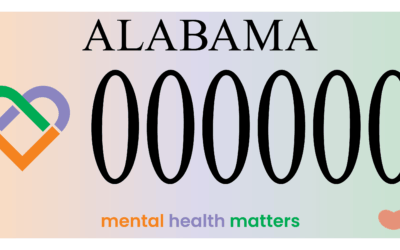







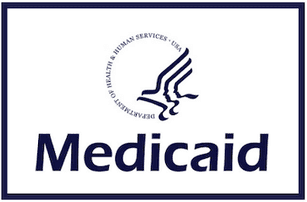







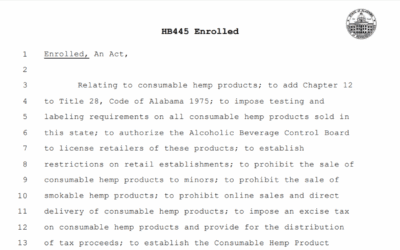
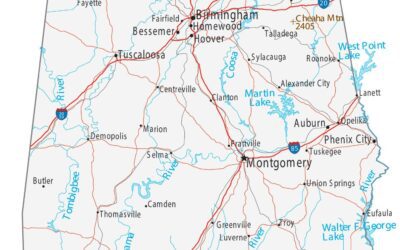
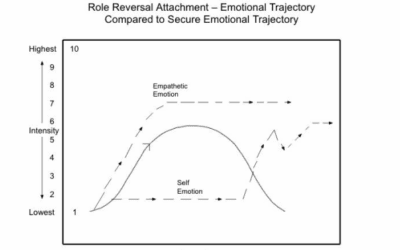


0 Comments